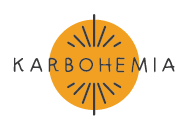Karen Karbo on Julia Child
The Portland writer dishes on her new book about the French-cooking queen.
Karen Karbo practices what she preaches. Lesson number six in her new book, Julia Child Rules: Lessons on Savoring Life, is, “To Be Happy, Work Hard,” and Karbo, author of three novels; an Oregon Book Award–winning memoir; and countless stories, essays, and journalistic pieces, is certainly among the hardest-working writers in Portland.
The latest fruits of her labor, Julia Child Rules, is the fourth in Karbo’s popular Kick Ass Women series of biographies/self-help books about great 20th-century ladies like Coco Chanel, Georgia O’Keeffe, and Katharine Hepburn.
The book comes out October 1, and Karbo reads at Powell’s the same day. Culturephile caught up with the writer to learn what drew her to Child and what the artiste of French cooking can teach us (besides how to make the perfect Quiche Lorraine).
Julia Child has gotten a decent amount of exposure in recent years (through Julie & Julia, etc.). Why did you still want to write about her?
There are parts of her life that have always appealed to me, and it didn’t really matter what was going on in pop culture.
One is that she grew up 15 miles away from where I did, in Southern California, so for her to go to France in her 30s as a Californian and hurl herself into French culture, I knew exactly what that meant. The fact that she was able to be accepted by the French has not been given enough credit. Now, we live in a global village, and to be an Easterner or a Westerner is not what it used to be. But when Julia—who called herself a “California hayseed”—went to France, the sense of her being big, and loud, and Western was much greater. And mind you, she was also probably at least a foot taller than every other woman she met! When she was learning French, she would just go out there and make a fool of herself day in, day out. She had a great deal of charisma, but I imagine the French thought she was this freak.
The other thing that I think has been given short shrift with her is that she was pretty average. When she was in school, she was an average student—average to bad, actually, because the girl did love to party. Her philosophy at Smith was, “less study, more moonshine.” It wasn’t like she had this fantastic aptitude for cooking; she just had a huge passion for cooking, and she was an enormous workaholic. So, I feel like her ability to be absorbed in cooking was more complex, and there was probably a bit of obsessiveness in there.
The new book’s subtitle is “Lessons on Savoring Life.” What is the top life-savoring lesson Child can teach us?
The one that feels hardest to emulate—it’s the first lesson in the book—is to live with abandon. I realized the degree to which I myself don’t live with abandon when, recently, I went for a run without my phone. It was like I was on an ocean voyage. I thought, this is really tragic, that you feel so free, because we’re so tethered. When Julia decided cooking was for her, she completely hurled herself into it. She basically spent all her money on food, food equipment, and going to restaurants. From six in the morning until midnight, it was learning French recipes. She was all in. I feel like we struggle with totally abandoning ourselves to whatever our passion is. So, that’s a big lesson: living with abandon. What does it mean for us? Can we do it without our phone?
What is the most surprising thing you learned about Child?
She loved the hot dogs at Costco. And she never served hors d’oeuvres; the only thing she ever served were Pepperidge Farm goldfish in a little dish. When she lived in Cambridge, she would have people over for dinner—and because she lived in Cambridge, it was, like, Nobel Prize winners—and she would put out her little dish of goldfish. Despite the fact she came from an affluent family, she really was, at heart, a populist. That’s why she brought French cooking to us; she thought everybody should be able to experience the same joy she experienced.
As a young woman, Child worked as a secretary for the Office of Strategic Services, the precursor to the CIA. Tell us more about her time there.
Nothing could have prepared you more to build this incredibly complicated cookbook, with recipes and subrecipes and indexes and appendixes, than doing this kind of registry work…There’s all this talk about, was she a spy or was she not a spy. She was not a spy in that she wasn’t in a hotel, peeking around the potted palm. But in that she had access to all of the information and intelligence and she had an extraordinarily high security clearance, if you want to say that’s spy-like, that’s where she found herself.
What “Kick Ass” woman is up next?
I’m searching. People have said, “Can you write about someone who’s had a child?”, because all of my women haven’t had children. So I’m sort of casting about.









Awesome!
Deb, you rule. Thanks for braving the Captcha and daring to comment.